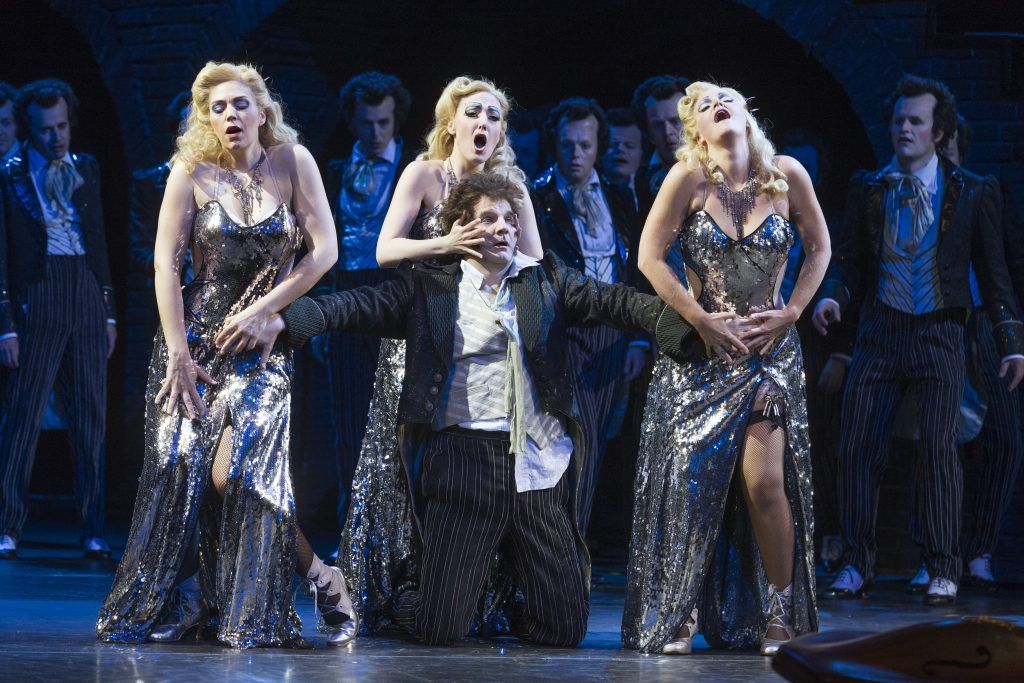Currently playing at Copenhagen’s fabulous Opera House, director Stefan Herheim’s new production of ‘The Tales of Hoffman’ offers a fresh 21st century look at Jacques Offenbach’s famous opera, taking the fantastique factor, the genre of magical realism, to new extremes.
Three hours and four acts later, I can now say that I’ve witnessed an operatic soprano sing an orgasm. If you just emitted a small gasp, you’re not alone – sexuality was fluid, gender roles were obliterated, and drag make-up reigned supreme in the telling of the amorous misadventures of Hoffman, our stumbling, inebriated protagonist (played by talented tenor Zoltán Nyári).
Fill my glass, s’il vous plaît!
The drunken, lovesick poet Hoffman is coaxed by the Muse (a fourth wall-breaking, omniscient narrator of sorts played by Elisabeth Jansson) to recount the mournful but fantastical tales of the three great loves of his life. We then wildly travel through Hoffman’s tales to a kooky scientist’s workshop in Paris, a violin-maker’s shop in Munich and a Venetian bordello.
Act I sees Hoffman mistakenly fall in love with the beautiful Olympia, an automaton doll created by mad scientist Professor Spalanzani (with frazzled hair Einstein would have envied).
Soprano extraordinaire Sophia Brommer tackles Olympia’s famous ‘Les Oiseaux dans la Charmille’ aria with admirable ease – an even more impressive feat as she is clad in nothing but garters and a restrictive corset.
Dark, twisted fantasy
And then following Munich, Act III takes the audience on a dark diversion to Venice – located, as Herheim says, “between the banks of Eros and Thanatos, art, and reality”.
A fear-stricken Hoffman is rowed through a dim-lit, spooky and smoke-filled stage of coffins by a Grim Reaper gondolier (using what else but his thresh as an oar) as the hauntingly beautiful duet ‘Belle Nuit, O Nuit D’Amour’ echoes from the brothel above, sung by the Muse and Hoffman’s courtesan love Giulietta (Gisella Steele), both in dazzling silvery, sequined gowns.
In the melancholic epilogue we return back to our hopeless and pitiful protagonist, now hoping to drown all his sorrows in alcohol.
A masterclass in design
The production design was a triumph, as were the fantastically intricate costumes created by Esther Bialas.
These two elements combined to perfection every time the actors glittered and shone as they up and down the decadent set’s sky-high revolving staircase, which was sumptuously designed by Christof Hetzer.
So, maybe the fourth time’s the charm, eh Hoffman?














